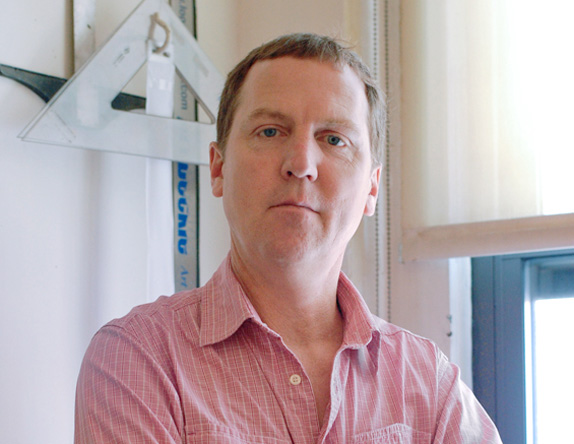Two cloned macaque monkeys are Indonesiapresently exploring the confines of an incubator, built for human babies, inside a research laboratory run by the Chinese Academy of Sciences.
Primates have been cloned before, but this is the first time monkeys were duplicated using the same technique -- called somatic cell nuclear transfer --that scientists used to clone Dolly the sheep, in 1996.
SEE ALSO: Meet the animals that probably went extinct in 2017Beyond the obvious scientific achievement -- whose results were published today in the journal Cell-- the important advancement here is that these scientists plan to produce more cloned monkeys in the coming months, and believe they can make primate cloning relatively cheap. The scientists underscore that these genetically identical animals, akin to identical human twins, are to be used only to advance human medicine.
"Monkeys are non-human primates that evolved close to humans," said study co-author Mu-ming Poo, who is the director of the Institute of Neuroscience at the Chinese Academy of Sciences, during a call with reporters. "Thus, they’re ideal models for studying human diseases and developing medical treatments."
Today, new human medicines are regularly tested on critters like mice or in test tube conditions (also called "in vitro"), but Moo believes cloning animals -- specifically those genetically close to us -- is necessary.
"I’m personally not confident that we can produce really good medical treatments without testing real animals," said Moo.
The two cloned female monkeys, who are six and eight weeks old, are not being experimented on right now due to their young and fragile state, said Moo. They're also being kept in the closely-monitored incubator away from their surrogate mothers (which carried the cloned embryos) because Moo is "concerned surrogate mothers will not take care of them well."
The benefit in producing cloned monkeys (or any animal) is that they share the exact same genetic make-up, which would give researches a uniform set of animals from which to test new drugs. For instance, if a lab had 10 cloned monkeys, it could give five of them an experimental medicine, and give the others no treatments (the control group). The results of the treatment would ostensibly give researchers clearer answers about whether or not a treatment, perhaps for a form of cancer, worked.
But other researchers are not so sure cloning monkeys -- which is an inherently expensive and ethically controversial undertaking -- is necessary.
"The thing is, it is very expensive research and you need a really good justification to clone 20 monkeys," said Hans-Michael Kubisch, a genetic researcher who previously managed the breeding of rhesus monkeys at the Tulane National Primate Research Center, in an interview.
"There might be some research that’s desirable to have monkeys that are all alike, but I think it would be exceptional circumstances," said Kubisch.
 Original image has been replaced. Credit: Mashable
Original image has been replaced. Credit: Mashable Moo estimated that cloning a monkey could cost around $50,000, but he didn't give details about how he arrived at this number -- and it's unlikely this includes the costs of maintaining a colony of intelligent, cloned creatures to be used in animal studies.
"I would argue there are other animal models that are less expensive than monkeys," said Carol Keefer, who researches embryonic development and stem cells at the University of Maryland.
Even if a well-funded government or university lab did buy a group of cloned monkeys from the Chinese Academy of Sciences, it's not as if this would create a completely ideal laboratory model.
"Monkeys are closer [to humans] than pigs, but even then it's not going to be a perfect," said Keefer.
With this type of cloning technique, Keefer noted that researchers can give all the clones a specific type or variant of a gene, perhaps one that causes an incurable disease like cystic fibrosis. This would allow scientists to test novel medicines on the animal, to see how they work, "so you can make claims about the effectiveness of a drug," he said.
 Original image has been replaced. Credit: Mashable
Original image has been replaced. Credit: Mashable Giving intelligent primates a genetic disease for the benefit of testing human medicine would be rife with controversy, especially in the U.S, which has banned biomedical testing on chimpanzees.
But Moo thinks Western countries will come around to the idea of cloning monkeys for medical research. He recognized that "the public sentiment against the use of monkeys is in Europe and the United States," but expressed hope that Western countries "will gradually change their mind" and accept monkeys as a useful medical species.
Moo also noted that his lab has no interest in cloning humans, stating there is "no intention to apply this method to humans."
If the human persuasion of primate were ever cloned, Keefer makes the important point that these clones wouldn't simply be medical "models" in a laboratory.
"That wouldn’t be a model," she said. "That would be a patient."
 'Severance' Reddit theory may have answered the 'Cold Harbor' mystery
'Severance' Reddit theory may have answered the 'Cold Harbor' mystery
 The internet documents a British monarch's death — for the first time
The internet documents a British monarch's death — for the first time
 'Quordle' today: See each 'Quordle' answer and hints for September 7
'Quordle' today: See each 'Quordle' answer and hints for September 7
 Scientists zoom in on Betelgeuse, show why it hasn't exploded yet
Scientists zoom in on Betelgeuse, show why it hasn't exploded yet
 SpaceX's Starlink satellite launch in pictures
SpaceX's Starlink satellite launch in pictures
 An Artist Is Stuck on This Bankrupt Container Ship
An Artist Is Stuck on This Bankrupt Container Ship
 TikTok is brimming with (and repurposing) old internet memes
TikTok is brimming with (and repurposing) old internet memes
 Wordle today: The answer and hints for October 25
Wordle today: The answer and hints for October 25
 Best soundbar deal: Get $50 off the Amazon Fire TV Soundbar Plus
Best soundbar deal: Get $50 off the Amazon Fire TV Soundbar Plus
 Hilary Mantel: “The Internet Keeps Regurgitating You”
Hilary Mantel: “The Internet Keeps Regurgitating You”
 UGREEN Nexode 25000mAh 200W power bank drops to $79.99 at Amazon
UGREEN Nexode 25000mAh 200W power bank drops to $79.99 at Amazon
 Dan Walsh by Daisy Atterbury and Lily Swistel
Dan Walsh by Daisy Atterbury and Lily Swistel
 T. S. Eliot: “The World Will Always Be an Unpleasant Place”
T. S. Eliot: “The World Will Always Be an Unpleasant Place”
 Best Echo Show deal: Get the Amazon Echo Show 8 and smart color bulb for $69.99
Best Echo Show deal: Get the Amazon Echo Show 8 and smart color bulb for $69.99
 I'm a college professor. My advice to young people who feel hooked on tech
I'm a college professor. My advice to young people who feel hooked on tech
 Skipping the Debate in New Orleans
Skipping the Debate in New Orleans
 Inside the movement redefining and resisting professionalism
Inside the movement redefining and resisting professionalism
 Elements: Monoprints by Dan Walsh
Elements: Monoprints by Dan Walsh
 Ursula K. Le Guin: How I Started Writing
Ursula K. Le Guin: How I Started Writing
Facebook proves, yet again, that it's terrible at mathGM will test its selfVanity Fair is riding high on its Trump feudPhotographer transports sick kids from hospital, to the North PoleYouTube wants YouTubers to be less angry about subscriptionsGet a sneak peek at January's 'Chicago Fire' and 'P.D.' crossoverIt's almost the weekend, so here are some NSFW pics of dick latte art'Rogue One' early box office estimates have cleared the planetDrone captures badass killer whales killing a shark like it's NBDTroll sends strobing GIF to journalist with epilepsy, triggers seizureVanity Fair just slammed Trump Grill and Donald is not happy about itThese beautiful sea smoke images are one silver lining of the polar vortex'Overwatch,' 'CS:GO' and everything you need to watch in esports this weekendFacebook proves, yet again, that it's terrible at mathThis country went crazy tweeting about sports in 2016Twitter has a new plan for VineFacebook finally cracks down on fake newsWild Siberian survival reality show sounds a lot like 'Hunger Games'Woman gets horny guy to kiss a tractor for a chance at nude picturesPebble wearables will receive support from Fitbit through 2017 Huawei to unveil new foldable phone, the Mate Xs, in February 2020 Everything coming to Amazon Prime Video in January 2020 Tech companies to Trump: Your travel ban still sucks (and we're here to help strike it down) Mark Hamill brutally shuts down Trump staffer in 1 tweet What was Leia's end in 'Rise of Skywalker'? How to hack the color of Star Wars: Galaxy's Edge lightsabers Here’s how Tesla stans celebrate the holidays Footage of a door slamming shut on its own is really creeping people out Bird staring at itself in this window is not having an existential crisis Netflix's 'Don't F**k with Cats' examines killer Luka Magnotta: Review Facebook unveils plan to fight interference in 2020 Census Chimamanda Ngozi Adichie's tips for raising the next generation of feminists These cute little succulents look like bunnies throwing up the peace sign A British store is launching cafes where people can chat about mental health Donald Trump's tweet about Snoop Dogg may be his weirdest 140 characters so far Lyft incorrectly flags users with real names, like Dick, as offensive Runaway Uber crashes into gas station and erupts into a fireball American Airlines now offers non 'Astronomy Club' on Netflix is a true holiday gift Spotify drags 'Do They Know It's Christmas' right there in the app
1.5873s , 10133.5390625 kb
Copyright © 2025 Powered by 【Indonesia】,Prosperous Times Information Network